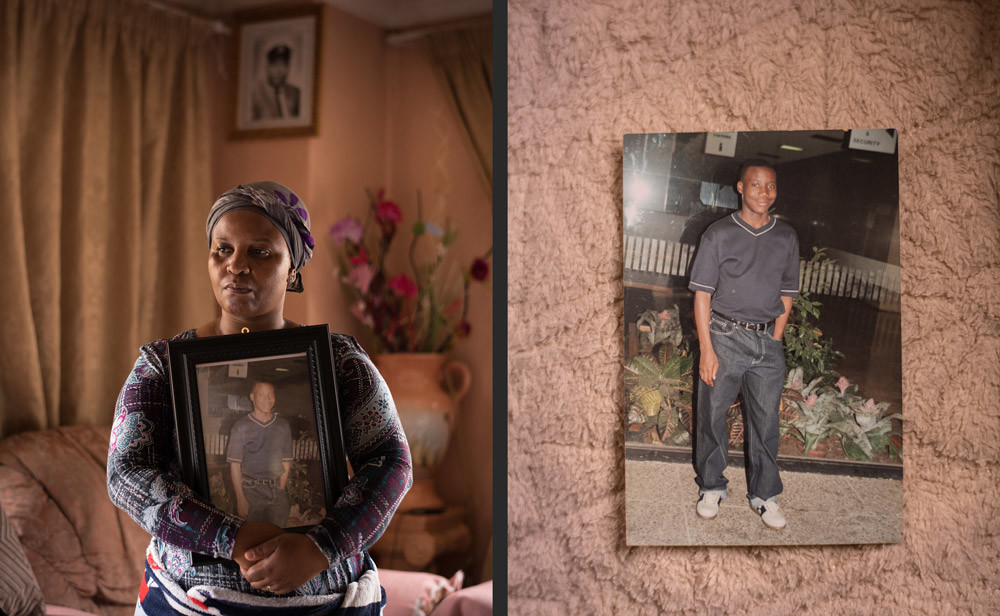read the full story
read the full story
Emaciated, mutilated, dead: the mental health scandal that rocked South Africa
In September 2016, Phumzile Motshegwa received a call from an unknown number. The woman on the end of the line said Motshegwa’s brother, Solly, was dead. His body was at a funeral parlour in Atteridgeville, a township in South Africa. Did she want to go and collect him? The address she gave was a disused butcher’s shop. When Motshegwa arrived, a man hosing down blood-stained floors handed her a pair of rubber gloves.
“Do you know your brother?” he asked.
“Yes,” she answered.
“Choose your brother, then.”
Motshegwa put on the gloves. Before her stood metal tables stacked high with decomposing corpses. “I counted 36 bodies,” she says. “I was shifting all these ladies and guys around until I saw Solly. I saw his head, I saw his scar, so I said, ‘This is my brother.’”
“I counted 36 bodies… I was shifting all these ladies and guys around until I saw Solly. I saw his head, I saw his scar, so I said, ‘This is my brother.’”
Solly had lived in hospital since a 1989 machete attack during political clashes left him brain damaged. He had been happy and healthy, and recently celebrated his 54th birthday. Now his body lay in front of her, emaciated and mutilated.
Motshegwa took the shawl from her shoulders and draped it across Solly’s bony frame.
What happened to Solly – and hundreds of other patients with mental health problems who died in gruesome circumstances – has come to be known as the worst human rights scandal to hit democratic South Africa.
Over eight months between 2015 and 2016, some 1,700 vulnerable and mentally ill people were moved from Life Esidimeni, a cluster of privately run mental healthcare facilities in Gauteng province, to various unlicensed care homes – many of which were simple suburban residences hastily repurposed.
144 people – nearly one in 10 – died from causes including starvation, dehydration and cold.
Health authorities described it as a “project” to deinstitutionalise patients and save money. But 144 people – nearly one in 10 – died in the aftermath, from causes including starvation, dehydration and cold. At one home, Precious Angels, 23 of the 57 patients transferred were dead within a year.
Nathaniel “Solly” Mashigo was one.
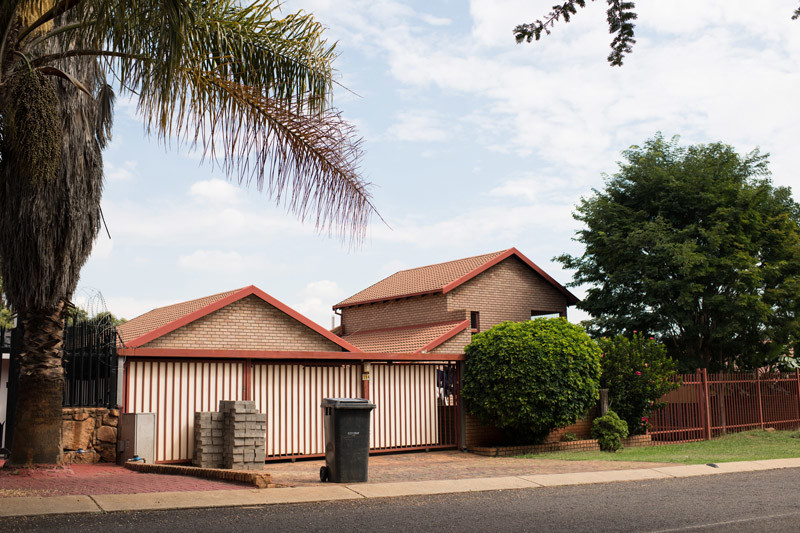
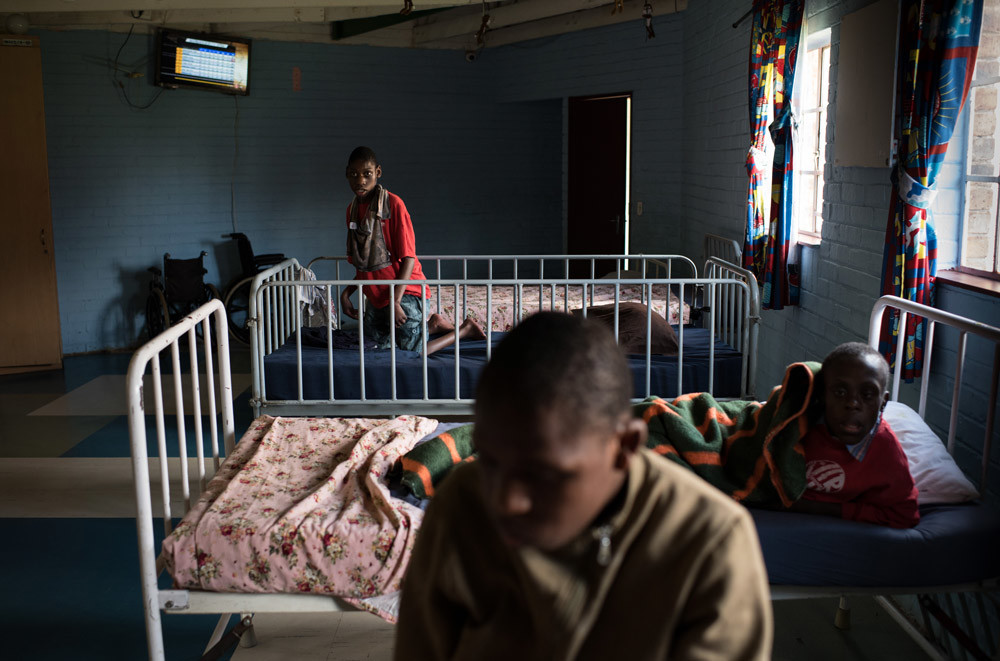
Survivors have told the Guardian how they were gathered together, many with their hands tied, and bundled into buses and bakkies (pickup trucks) to head for new homes. A significant number were transferred without files, medications or identity cards. Families were largely left in the dark over when or where loved ones had been moved.
Authorities admit they struggled to keep track of everyone. Three years on, 44 people are still missing.
Three years on , 44 people are still missing
The day after Motshegwa found Solly’s body, she returned to the ad hoc funeral parlour – which was trading as PutU2Rest Mortuary – just to confirm that what she had seen was real. She had known that the unit where Solly lived was closing. But she did not know that he had been transferred to an unlicensed charity with no qualifications or infrastructure to accommodate mentally ill people.
He was moved without Motshegwa’s knowledge or consent. Solly had also been dead for a month before his sister was told.
“I was driving to my mother’s home when I got the phone call,” she says, from her home in Pretoria. “I went to the [charity], it was an old house in Danville. I saw my brother on 2 June [at Life Esidimeni] and he died on 2 August. But nobody told me anything. I said to [the manager], ‘You know, I live here in Danville too. Why didn’t you call to tell me my brother was here? She said, ‘I didn’t have your number – Esidimeni didn’t give me the files.’”
Motshegwa exhales slowly. “Solly has lived in a hospital for most of his life. I blame the government. Because I told Esidimeni at a meeting, I don’t have parents [to look after him] and I’m working – I will lose my job if I have to look after Solly.
“They just took my brother, and they put him in a home.”
Advocate groups warned of “relapse and death following the relocation of users.
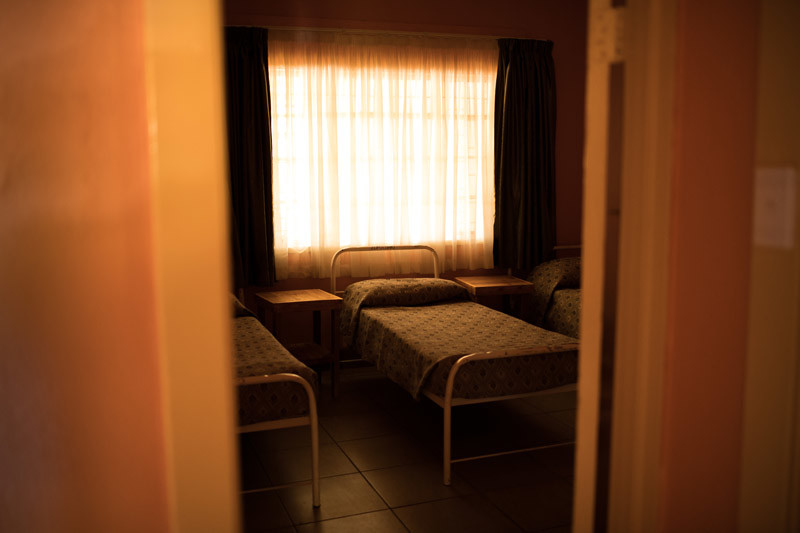
Warnings were given over the planned relocations. Psychiatrists at Life Esidimeni raised alarm bells when the healthcare provider’s 30-year-strong contract was terminated in September 2015. Advocate groups including Section 27, a public interest law centre, and the South African Depression and Anxiety Group (Sadag) threatened court action to stop Gauteng’s health department from moving patients, warning of “relapse and death following the relocation of users”.
Authorities agreed they wouldn’t move anyone from Life Esidimeni to “inferior facilities”. They broke their promise, says Joyce Orritt, a mental health worker who tried to stop the transfers.
“We knew full well that Life Esidimeni patients would never cope. They were there under the mental health care act. They were committed. They couldn’t care for themselves. They couldn’t be ‘deinstitutionalised’.”
Authorities agreed they wouldn’t move anyone from Life Esidimeni to “inferior facilities”. They broke their promise
Orritt knew the smaller organisations well because she visited them often. She had evidence of kitchens with no food. Patients tied to their beds. Deaths. Two weeks shy of her retirement, she was suspended, and asked to hand over all incriminating files and photographs of problem care organisations. Soon after, the relocations began.
“I’ve been working in mental health for 39 years. But what happened with Esidimeni…” she trails off. “I sobbed for a year.”
“I’ve been working in mental health for 39 years. But what happened with Esidimeni…” she trails off. “I sobbed for a year.”
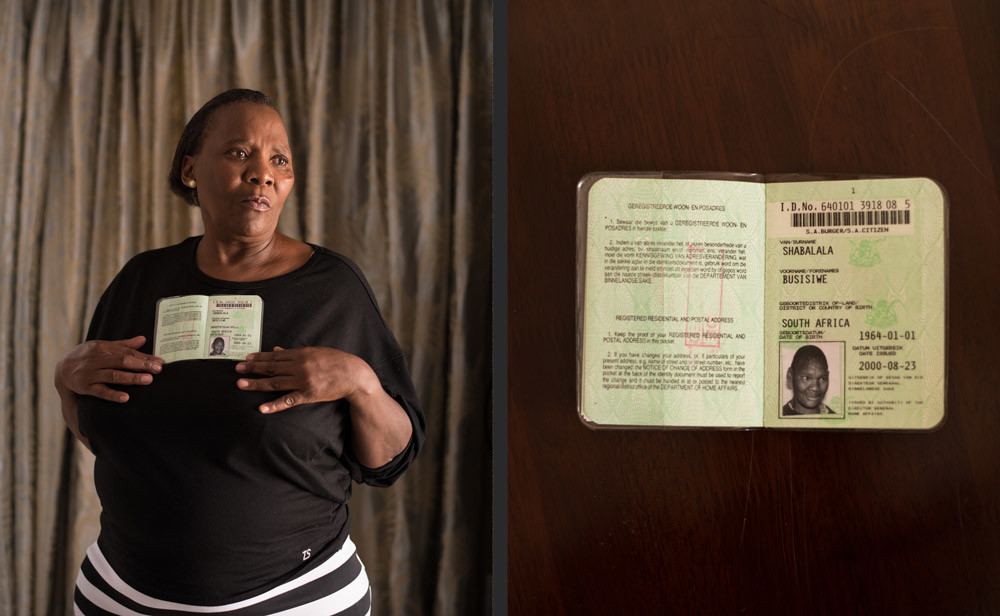
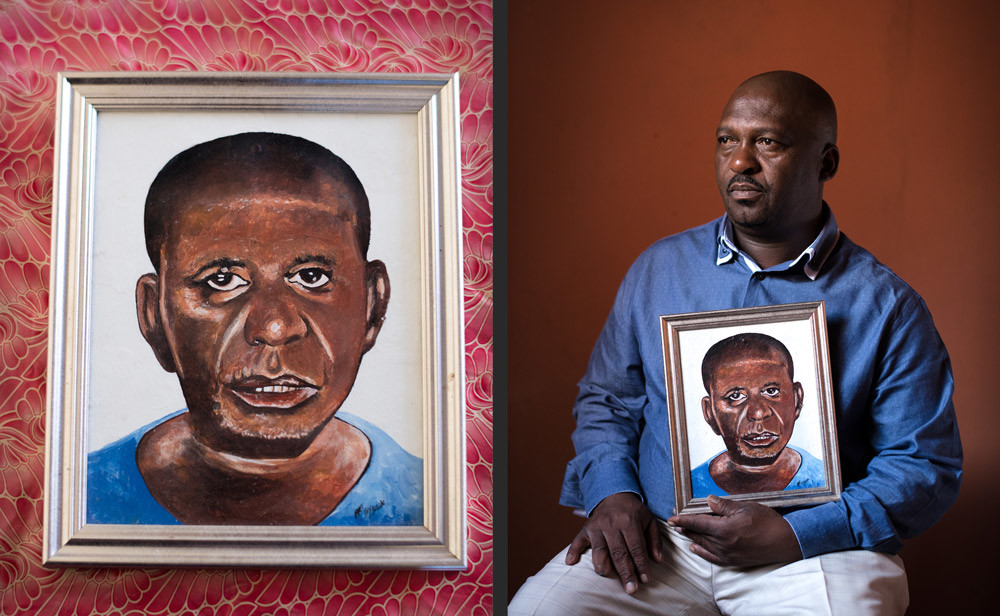
South Africa is the continent’s richest and most advanced state, and its 2002 mental healthcare act is laudable. But officials joke the nation’s first-world policies are stymied by developing-world implementation. Although more than one in three South Africans are believed to be living with some form of mental illness, 75% are likely to never get treatment – a combination of paltry budgets, inadequate facilities and widespread taboo.
The tragedy has exposed a long-known secret: nationwide, many patients are held in appalling conditions, receiving abysmal care. Psychiatrists from other institutions around the country have warned that the Life Esidimeni tragedy is merely the tip of an iceberg.
Psychiatrists from other institutions around the country have warned that the life Esidimeni tragedy is merely the tip of the iceberg.
Despite a lengthy, televised arbitration which included a number of senior health officials, the exact motive behind the Esidimeni transfers remains a mystery. Cronyism, corruption and fraud – painfully characteristic of the disgraced presidency of Jacob Zuma, who faces 783 counts of alleged wrongdoing himself – seem to be at the heart of the tragedy. Authorities claimed that the move would save money, but state payments to the unlicensed homes totalled 47.5m rand (£2.7m) and continued long after patients had died and these homes were shut down.
The former director of Gauteng’s mental health services Dr Makgabo Manamela drew up the relocation plan and was physically present at removal sites. She also allowed the organisations to begin operating even though they had not signed service contracts, which meant they went unpaid and were consequently unable to buy food or supplies for the new patients. Still, she testified that she was unaware of what the repercussions would be. “I didn’t know they would be dying, and in our plan we didn’t plan for anybody to die,” she said.
“I didn’t know they would be dying, and in our plan we didn’t plan for anybody to die.”
Gauteng’s former head of health Tiego Selebano admitted to signing and backdating NGO licenses – even after patients had died – as well as to being “fearful” of his boss, the former provincial health minister Qedani Mahlangu. At his testimony – during which even former deputy chief justice Dikgang Moseneke was in tears – Selebano apologised for his negligence, telling the families: “You have every right not to forgive us… We made a mess.”
In his final judgment, Moseneke found that the officials had acted unconstitutionally and had behaved, literally, as though they would “get away with murder”. “The death and torture of those who died in the Life Esidimeni [tragedy] stemmed from arrogant and irrational use of public power,” he told the hearing.
“The death and torture of those who died in the Life Esidimeni [tragedy] stemmed from arrogant and irrational use of public power.”
Perhaps, then, it is no surprise that many family members feel like no one in power is taking what happened seriously. Not a single official has been fired (Manamela and Selbano were suspended, while Mahlangu resigned) and there are no indications that anyone will face criminal charges. Even Cyril Ramaphosa, who recently replaced Zuma as president and has vowed to combat corruption, came under fire after he was photographed meeting Mahlangu, whom he described as a “comrade” and “human being like all of us”.
“Our government, the one we chose, killed our people, [while] the [apartheid] government we hated took care of our people,” says Luleka Khunjwa, whose sister Maureen, 62, died at Takalani, a home in Soweto for people with disabilities, where claims of abuse, rape and death made national headlines.
“There was no food. There were no staff. There were no facilities. Some NGOs used their discretion to bury bodies without informing the families,” says Christine Nxumalo, whose sister Virginia had Alzheimer’s and died at Precious Angels. “They just didn’t care. They act like it’s no big deal, like these lives just didn’t matter.
“It’s been a horrible thing to be part of.”
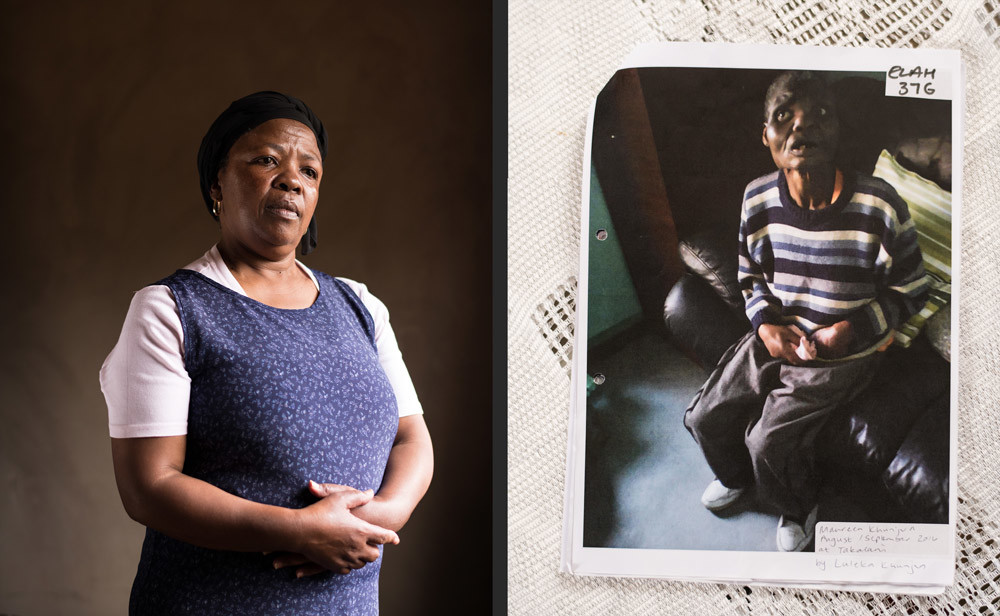
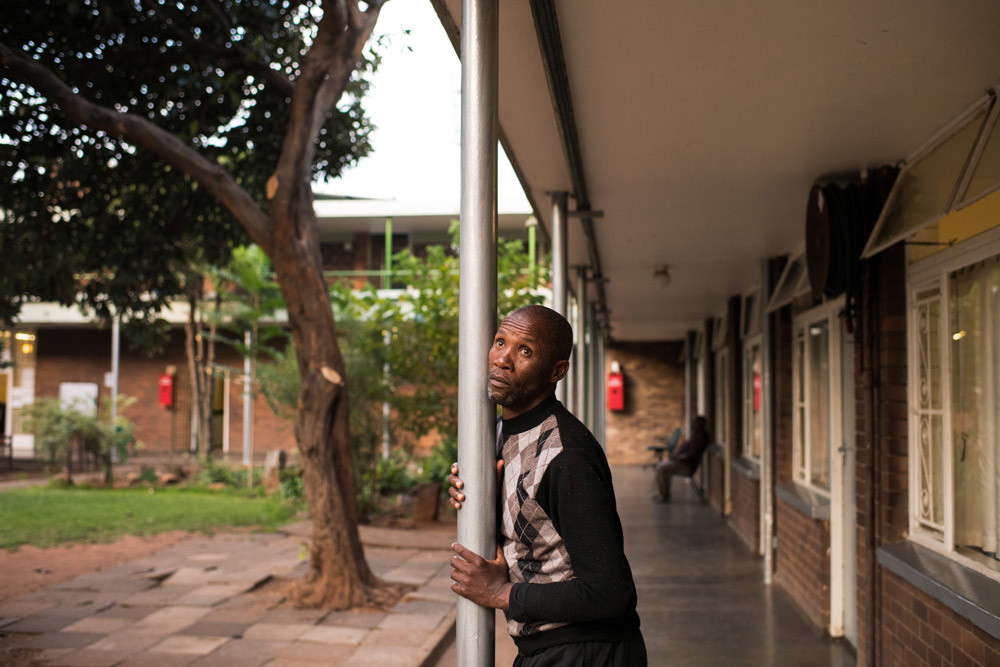
On a long, nondescript road in Krugersdorp lies a series of eight brick residences known as Mosego Home. The organisation bills itself as a “psycho-geriatric care facility” catering to 90 patients, and today operates with a licence. In 2016, when Andrew Pietersen’s uncle Victor Truter, 70, was transferred here with 62 others, it did not.
Pietersen was with his uncle on the day he left Life Esidimeni. Truter, who has chronic schizophrenia, had lived at the hospital for 40 years. Clutching his small bag of belongings, he limped toward the transfer bus. No one could tell Pietersen where he was being relocated. When he finally tracked his uncle down two months later to Mosego Home “he was a different man”, says Pietersen. “He was emaciated, he hadn’t eaten and he hadn’t been given his tablets.”
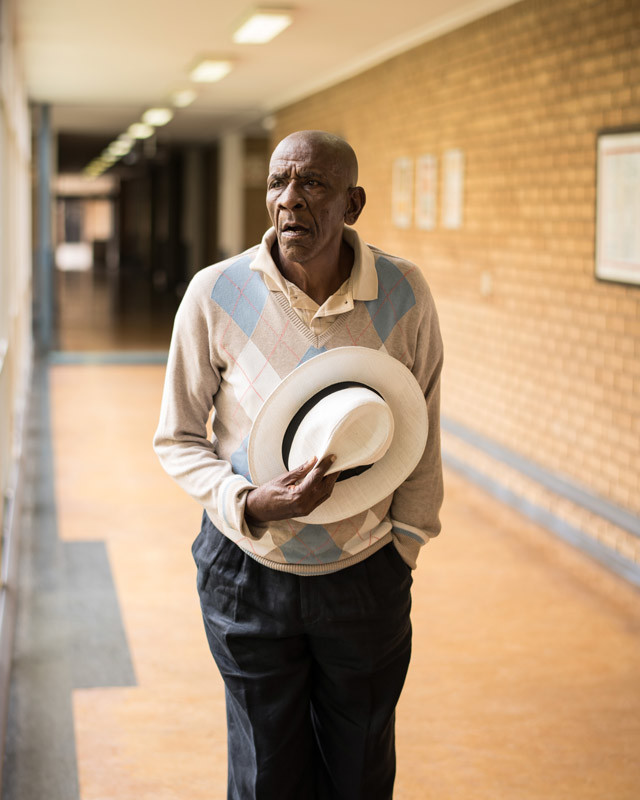
“He was emaciated, he hadn’t eaten and he hadn’t been given his tablets.”
Mosego’s owner, Dorothy Sekhukhune, extracts Truter’s tattered pink medical files to deny the allegations. “That is not true,” she says, shaking her head at Pietersen. “He’s been going around saying stories that aren’t true.” Truter’s handwritten files comprise little more than a few pages from a school notebook. Much of the data appears to have been written in one go by someone with a singular, florid handwriting. The first weight measurement is recorded 27 days after Truter was first admitted, then fluctuates by as much as 8kg within weeks. When questioned how this could be, one of Sukhukhune’s staff explains that weights always fluctuate if measurements are taken just after the patient has woken up.
Sukhukhune describes the Life Esidimeni transfer as a “rush” preempted by a visit from the provincial health department. “We were delegated patients. We went from five houses up to eight houses. We hired more staff. We were promised 4,000 rand (£210) per person per month” – she wags her pen to indicate this was insufficient – “so you have to go out and fundraise. We’re all volunteers here,” she adds, gesturing towards her staff as she pats down her hairdo.
Within months, seven of the 63 people transferred had died. Sukhukhune claims these were from natural causes, and says that Mosego patients were given adequate food, water and medication. But after the health ombudsman recommended that Mosego (as well as a number of other care organisations) be shut down, Truter and other Life Esidimeni patients were transferred once more – this time to a hospital with psychiatric facilities. “The ombudsman’s report has been very bad for us,” Sukhukhune says. “It has tarnished our relationship with our funders.”
Truter now lives on a multi-patient ward in downtown Johannesburg at Clinix Selby Park Hospital, which has since taken in hundreds of patients who were formerly at Life Esidimeni.
“They were traumatised,” says Kate Kumalo, one of Selby’s psychiatric nurses. “We have had to build them back up again.”
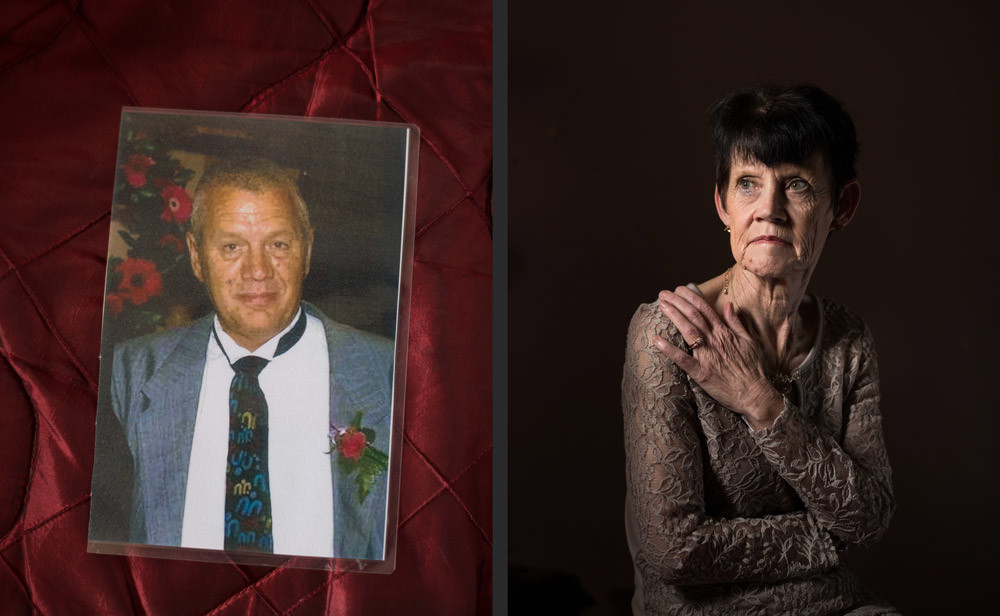
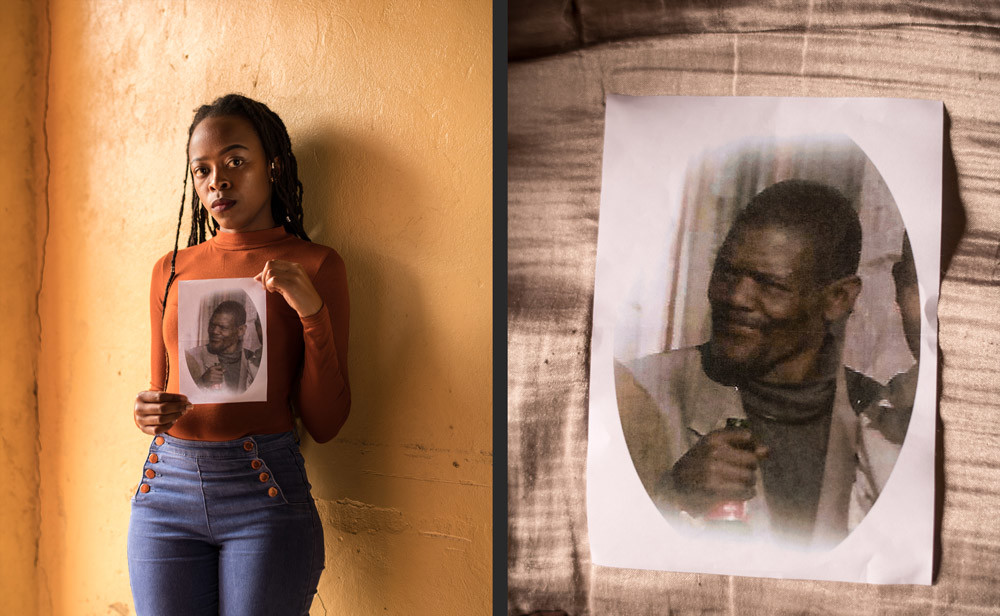
Many of the patients were previously under Kumalo’s care at Life Esidimeni – where she watched them being loaded onto trucks and transferred without any indication of where they were going.
“It was so sad. Some of the patients didn’t have any families and depended entirely on us. They were being moved at night in dilapidated vehicles and refusing to leave. And we didn’t know where they were going, and they didn’t know where they were going.”
She was shocked when some of them were readmitted under her care. “I was so happy to see them, and them to see me. I thought they had died. Then they came through this door. We didn’t know what had happened to most of them.”
One of them was Julian Holoane, 45, a former plumber from Lesotho who was diagnosed with schizophrenia in 2010. The move from Life Esidimeni was a traumatic experience, he says, and has strengthened his resolve to be discharged “back into the world” as soon as possible.
“I liked Life Esidimeni. They treated us like they were our parents and it felt like we were at home,” he says during a cigarette break, his hands shaking uncontrollably from his medication. “Then they said they would be moving us. I was angry because I did not want to move.
“People outside think we are mad but we are not. They don’t know anything about mental illness. All I see here is security, the buildings, the other people I live with. I want to go out, I want to see the world.”
“I need to go home.”
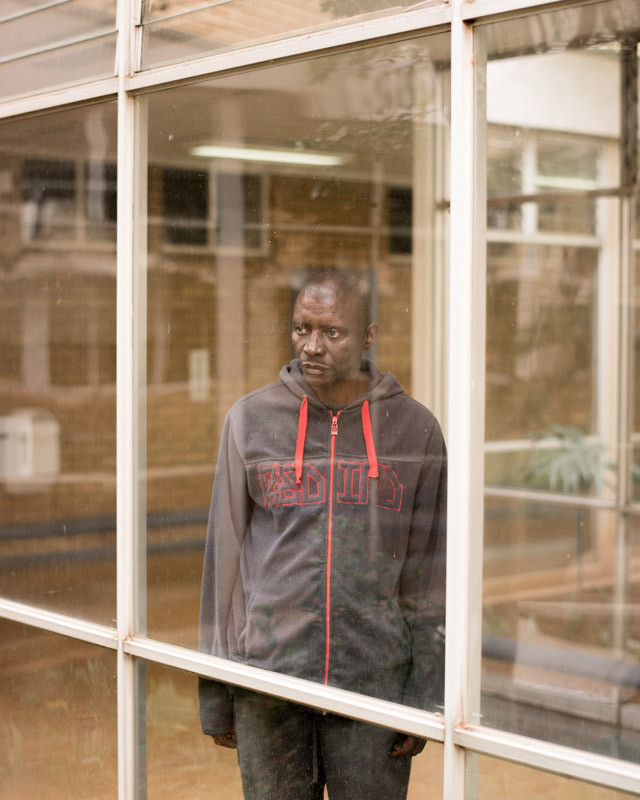
“I want to go out, I want to see the world.”
In March, Justice Moseneke ordered the South African government to pay 1.2m rand (£62,000) in compensation to survivors and family members of loved ones affected by the Esidimeni tragedy. To date, many are still waiting.
Far more significant, however, is how long families fear they will be forced to wait until the truth of the tragedy emerges. For Motshegwa, who first lost her husband, then her brother, and then her sister-in-law on the day of Solly’s funeral, all within months of each other, compensation alone can never do her brother’s death the justice it deserves.
“Solly was a good brother. He was happy. He was brilliant and he loved learning. But he left school so we could stay in school and he got a job so he could feed us. He protected us,” she says, wiping away tears.
“Everyone knew what a good guy he was. Everyone.”
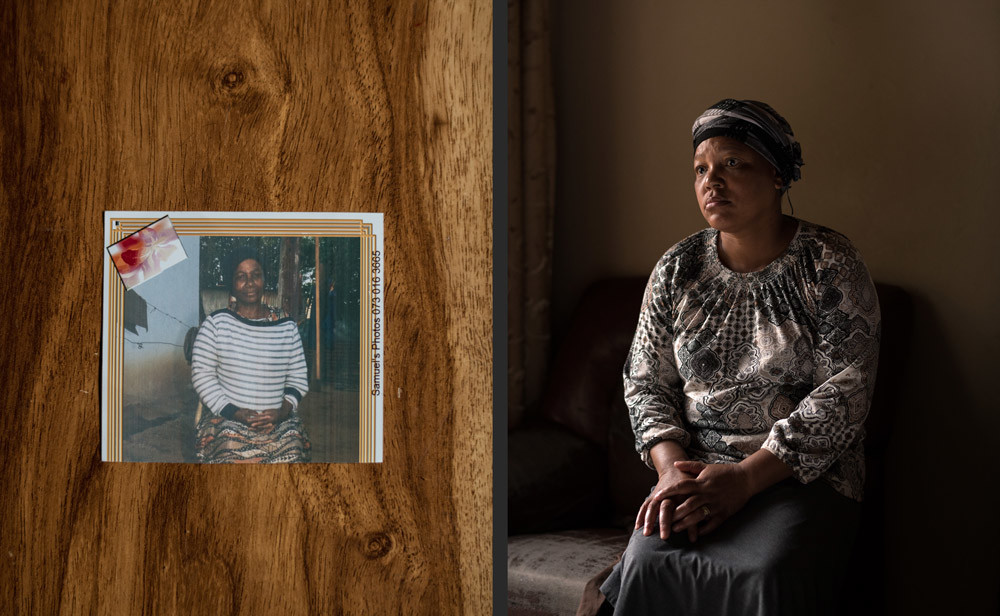
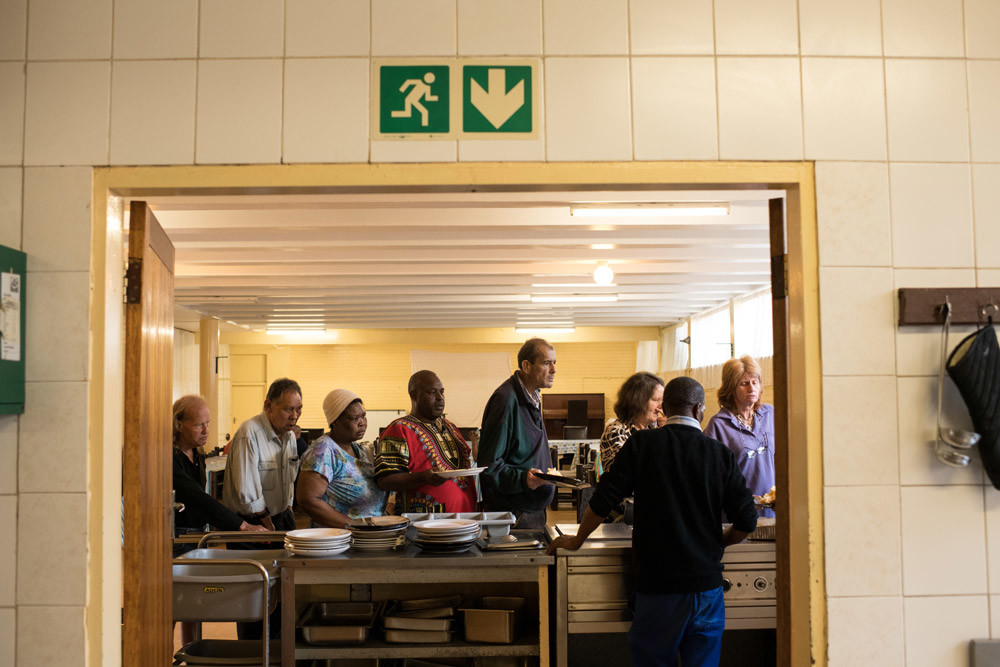
The Guardian interviewed more than 20 family members whose loved ones were transferred out of Life Esidimeni, nearly all of whom later died. While some of them had been told of the relocation, very few of them were told where and when the move would take place. As a result, families spent months looking for their loved ones – only to find that they had died weeks earlier. Many families have been refused post-mortems. Death certificates, if they exist, largely cite victims’ cause of death as “natural causes”, despite obvious signs of hunger, dehydration and abuse.
One of the first casualties was Lucas Mogwerane’s brother. Christopher, 56, who was diagnosed as schizophrenic, had lived at Life Esidimeni for roughly 10 years. Within two weeks of being transferred to Rebafenyi Care Centre, he was dead.
“I know Christopher as I know myself,” says Mogwerane of the day he went to visit him at Rebafenyi. “But on that day I couldn’t recognised him. He was so thin, he cried like a baby.”
Mogwerane handed Christopher a banana. Soon he was surrounded by other patients desperate for food. They ate their bananas whole, not even stopping to peel them.
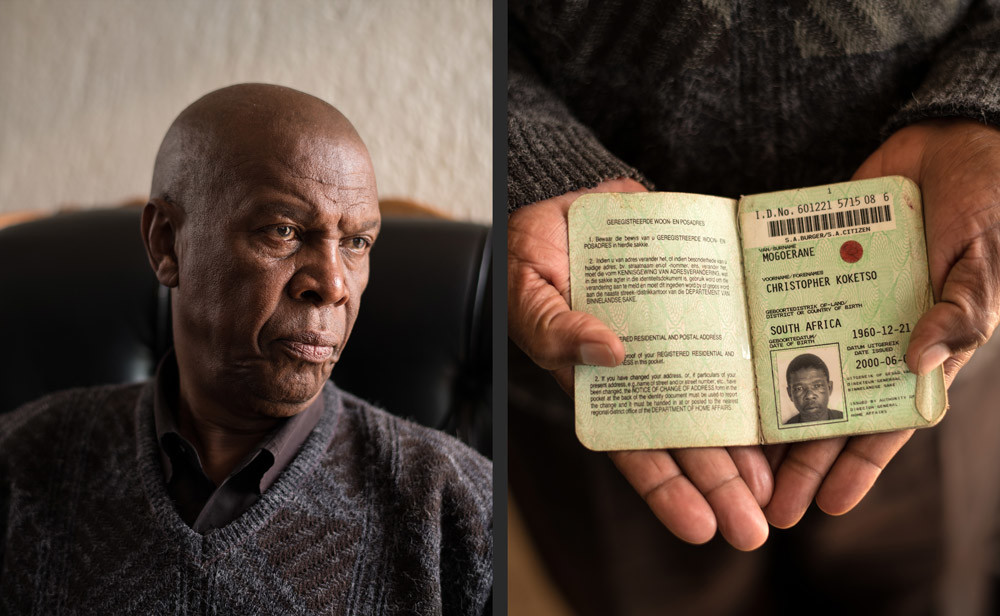
“I couldn’t recognised him. He was so thin, he cried like a baby.”
Daphne Dubree visited her granddaughter, Mehmona, 36, after she was transferred to Takalani, in Soweto. Within six months of leaving Life Esidimeni, Mehmona had lost a considerable amount of weight. She soon died. “It was a bundle of bones,” Dubree says of Mehmona’s body. “You could count the bones. I stood there and cried… It looked like they never gave her food.”
“You could count the bones. I stood there and cried… It looked like they never gave her food.”
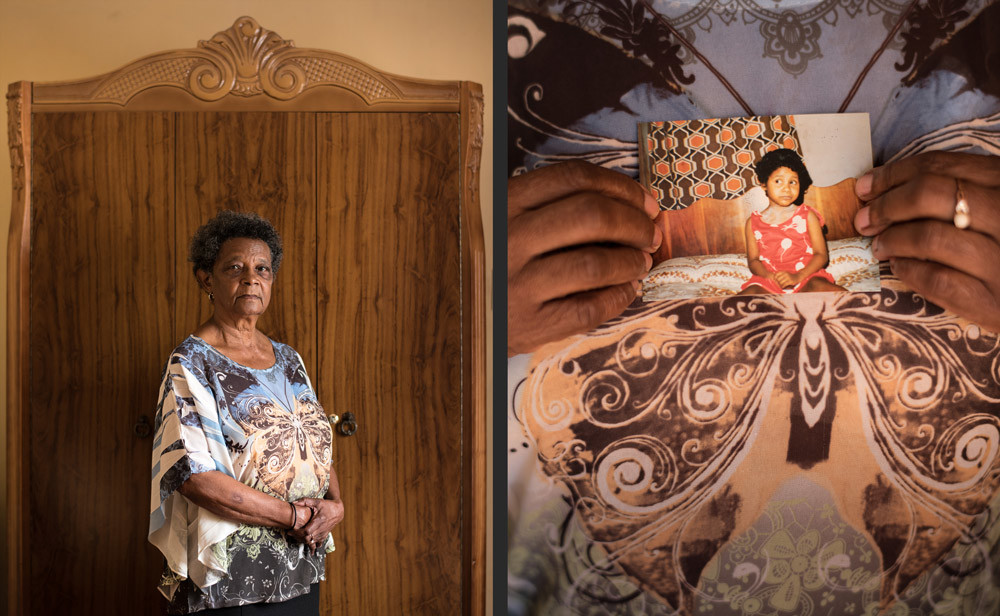
When Reverend Joe Maboe learned that Life Esidimeni would be closing, he wrote to voice his concerns over where his schizophrenic son Hendrick, 52, would be transferred. He never received a reply, and Hendrick was moved without Maboe’s knowledge or consent. When Maboe eventually found him in an organisation in Pretoria, he was filthy, hungry and wearing trousers soaked with urine.
“I saw death in his eyes,” says Maboe. “There were 40 of them in an ordinary garage. They didn’t have medication, they didn’t have enough food, they had no water to drink.”
Maboe tried to take Hendrick with him to see a doctor, but staff wouldn’t release him, claiming a doctor would have to sign off the paperwork. Four days later, Hendrick died.
“There were 40 of them in an ordinary garage. They didn’t have medication, they didn’t have enough food, they had no water to drink.”
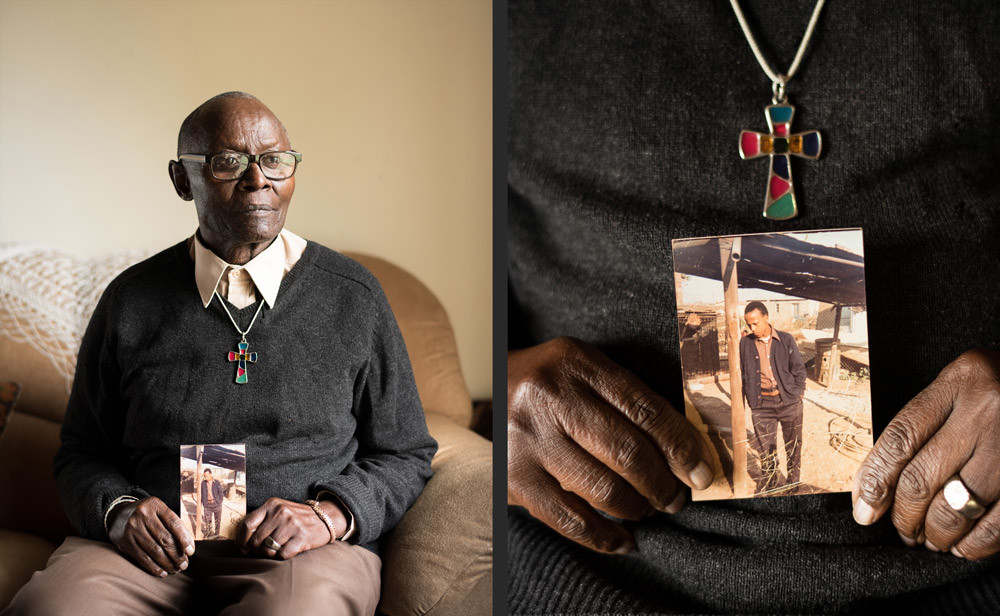
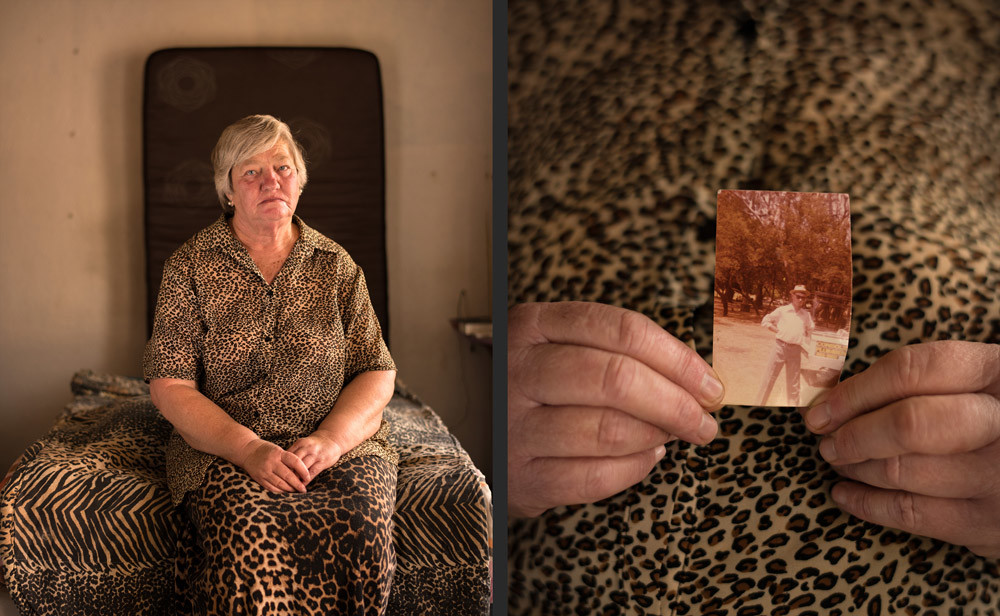
Daniel Maretele spent months looking for his sister Lydia, 45, after he discovered that she had been transferred out of Life Esidimeni to an unknown organisation. But by the time he tracked her down to Takalani, he was told that she had already died and had been buried in the gardens of the care home. He is now battling to exhume her body and give her a proper burial.
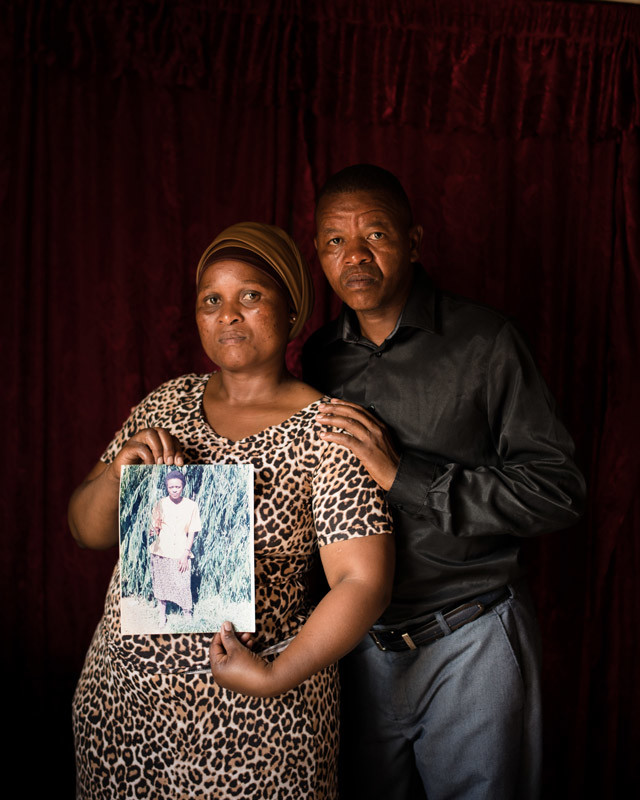
“They thought it would be swept under the table, and nobody would know about it. But God is always there.”
Terance Chaba was only 28 when he died at Precious Angels, a home owned by a woman whose only experience involved running a daycare centre. Chaba died within 10 weeks of being transferred to the charity, says her legal guardian, Susan Phoshoko. Of owner Ethel Ncube, she says: “She didn’t even know what they were taking – their breakfast, their meals, their medication. They thought it would be swept under the table, and nobody would know about it. But God is always there.”
